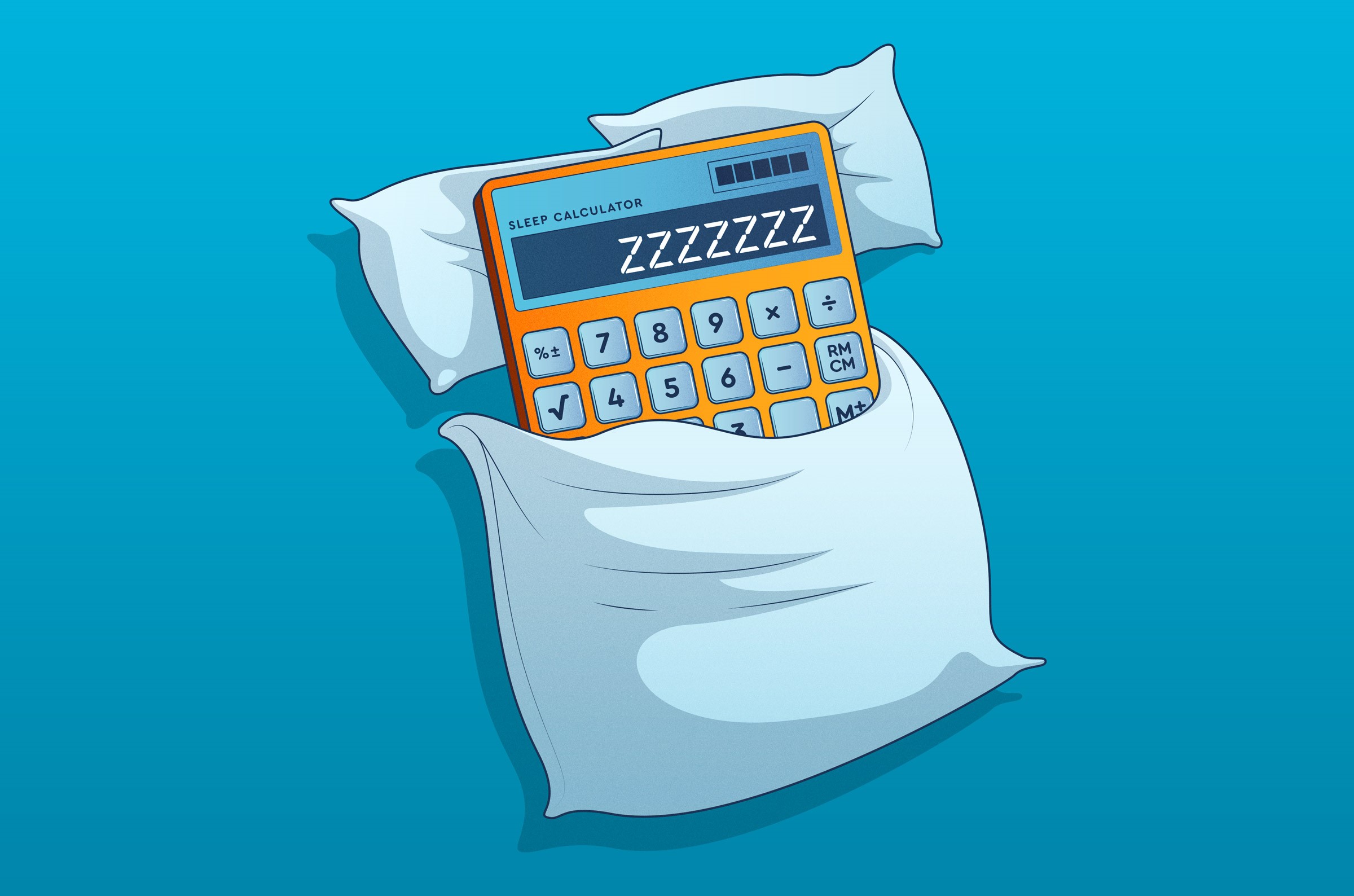
Getting enough quality sleep is essential for our physical and mental well-being. Yet, many people struggle with sleep timing. This article will guide you through understanding how to calculate your optimal bedtime for a restful night.
Introduction
Sleep is crucial for our health, but it’s not just about the quantity—quality matters too. Knowing when to go to sleep can significantly improve how well-rested you feel. This starts with understanding sleep cycles and how to time them perfectly.
Understanding Sleep Cycles
What is a Sleep Cycle?
A sleep cycle is a progression through different stages of sleep, including light sleep, deep sleep, and REM (rapid eye movement) sleep. Each cycle lasts about 90 minutes and repeats throughout the night.
Stages of Sleep
Stage 1: Light Sleep – The transition between wakefulness and sleep.
Stage 2: Light Sleep – Heart rate slows, and body temperature drops.
Stage 3: Deep Sleep – The body repairs and regrows tissues, builds bone and muscle, and strengthens the immune system.
Stage 4: REM Sleep – Brain activity increases, dreams occur, and the body undergoes vital functions for memory and learning.
The Science of Sleep Timing
Circadian Rhythm
Our circadian rhythm is our internal clock that regulates our sleep-wake cycle over 24 hours. It is influenced by environmental cues like light and darkness.
Sleep Inertia
Sleep inertia refers to the grogginess and disorientation felt upon waking up, which more is pronounced if you wake up during a deep sleep stage.
Why Calculating Sleep Timing is Important
Benefits of Optimal Sleep Timing
Aligning your sleep with your natural sleep cycles can help you wake up feeling more refreshed and alert. It improves mood, cognitive function, and overall health.
Consequences of Poor Sleep Timing
Poor sleep timing can lead to chronic sleep deprivation, increased stress, impaired cognitive function, and a higher risk of health issues like obesity and heart disease.
Factors Influencing Sleep Timing
Age
Sleep needs and patterns change with age. For example, teenagers have a natural tendency to sleep later and wake up later.
Lifestyle
Work schedules, social activities, and habits like caffeine consumption can significantly affect sleep timing.
Health Conditions
Conditions such as insomnia, sleep apnea, and restless leg syndrome can disrupt normal sleep patterns and timing.
How to Determine Your Ideal Bedtime
Calculating Backwards from Wake-Up Time
To find your optimal bedtime, start with your required wake-up time and count backwards in 90-minute intervals to fit in full sleep cycles.
Using Sleep Cycles to Find the Best Time
Most people need 4-6 sleep cycles per night, equating to 6-9 hours of sleep. Determine your wake-up time and count backwards to find when to go to bed.
Step-by-Step Guide to Calculating Sleep Timing
Identify Wake-Up Time
Determine the time you need to wake up. This will be your anchor point for calculating your bedtime.
Understand Sleep Cycle Duration
Each sleep cycle is approximately 90 minutes long. You will need multiple cycles per night to feel rested.
Calculate Backwards for Ideal Bedtime
From your wake-up time, count backwards in 90-minute increments to find your ideal bedtime. For example, if you need to wake up at 7:00 AM, your bedtimes might be 9:00 PM, 10:30 PM, or midnight, depending on how many cycles you need.
Using Sleep Calculators and Apps
Benefits of Sleep Calculators
Sleep calculators simplify the process of finding your optimal bedtime by automatically calculating sleep cycles based on your wake-up time.
Recommended Sleep Apps
Apps like Sleepytime, Sleep Cycle, and Bedtime Calculator can help track and optimize your sleep schedule.
Creating a Sleep-Friendly Environment
Importance of Sleep Hygiene
Good sleep hygiene involves creating an environment conducive to sleep and maintaining habits that promote regular, restful sleep.
Tips for Optimizing Your Sleep Environment
· Keep your bedroom cool and dark.
· Invest in a comfortable mattress and pillows.
· Limit noise and light disturbances.
· Avoid screens before bedtime.
· Incorporating Relaxation Techniques
Benefits of Relaxation Before Bed
Relaxation techniques can help reduce stress and prepare your body for sleep, making it easier to fall asleep quickly and improve sleep quality.
Effective Relaxation Techniques
· Meditation
· Deep breathing exercises
· Progressive muscle relaxation
· Reading a book
· Adjusting Your Schedule Gradually
The Importance of Consistency
Consistency in your sleep schedule helps regulate your internal clock and improves sleep quality. Gradual adjustments make it easier for your body to adapt.
Tips for Gradual Adjustments
· Shift your bedtime by 15-30 minutes each night until you reach your desired schedule.
· Maintain the same wake-up time even on weekends.
· Monitoring and Adjusting Your Sleep Schedule
Keeping a Sleep Diary
A sleep diary helps you track your sleep patterns and identify factors that may be disrupting your sleep.
Recognizing When Adjustments Are Needed
If you’re still feeling tired or having trouble waking up, you may need to adjust your bedtime or improve your sleep hygiene.
Common Sleep Mistakes to Avoid
Over-Caffeination
Avoid consuming caffeine late in the day, as it can interfere with your ability to fall asleep.
Try to maintain a consistent sleep schedule, even on weekends, to avoid disrupting your circadian rhythm.
The Role of Diet and Exercise in Sleep Quality
Foods That Promote Better Sleep
Foods rich in tryptophan, magnesium, and melatonin, such as turkey, almonds, and cherries, can promote better sleep.
Exercise and Its Impact on Sleep
Regular physical activity can improve sleep quality and help you fall asleep faster. However, avoid vigorous exercise close to bedtime.
Conclusion
Calculating your ideal bedtime and maintaining good sleep hygiene can significantly enhance your sleep quality and overall health. By understanding and aligning with your natural sleep cycles, you can wake up feeling refreshed and ready to tackle the day.
FAQs
How many sleep cycles do I need per night?
Most adults need 4-6 sleep cycles per night, which equates to 6-9 hours of sleep.
Can I use a sleep calculator every night?
Yes, sleep calculators can be used nightly to help maintain consistent sleep schedules.
What if I wake up during a sleep cycle?
Waking up during a deep sleep stage can cause grogginess. Aim to wake up at the end of a cycle to feel more refreshed.
How can I improve my sleep quality?
Maintain a consistent sleep schedule, create a sleep-friendly environment, and incorporate relaxation techniques before bed.
What is the best way to track my sleep patterns?
Keeping a sleep diary or using a sleep-tracking app can help monitor and improve your sleep habits.








